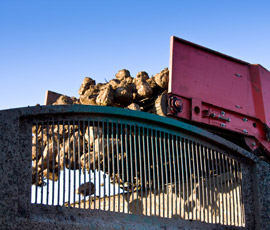 ers will broadly welcome any rise in price, the extra £1/t for 2014 negotiated by the NFU on behalf of the 3,500 UK beet growers is hardly transformational, says Andersons director Jay Wootton.
ers will broadly welcome any rise in price, the extra £1/t for 2014 negotiated by the NFU on behalf of the 3,500 UK beet growers is hardly transformational, says Andersons director Jay Wootton.“There is an implicit recognition that the price formula is not working and a review is likely in time for the 2015 price setting.”
Any revised price formula will probably only apply for 2015 and 2016 beet crops. EU sugar beet quotas will cease on 30 September 2017, meaning the 2017 crop will be sold into a brave new deregulated world, says Mr Wootton.
“The Inter-Professional Agreement (IPA) between British Sugar and the NFU will also end. There may no longer be a single beet price. A focus on truly commercial growers will emerge, probably accelerating restructuring trends of the past two decades.”
For growers achieving yields above 70t/ha, sugar beet remains a contender in the rotation. However, they will need to constantly examine their approach to growing to ensure they achieve the required yield. Main aspects to consider are soil structure and cultivations, says Mr Wootton.
“Ensuring care and timeliness with regard to conditions will help crops establish well and grow away quickly. Care with rotations is also important to avoid the build up of costly pests and disease and weed beet problems.”





